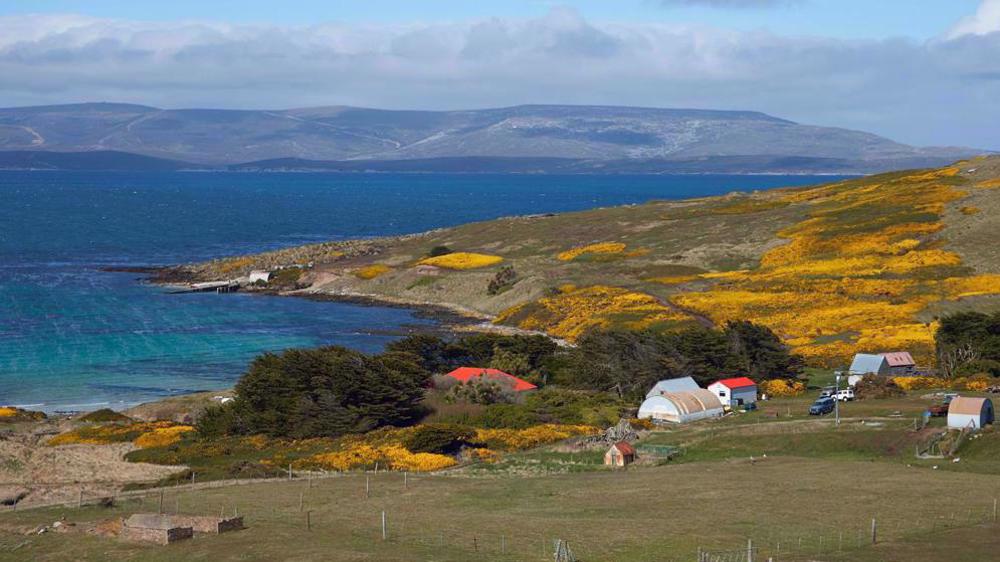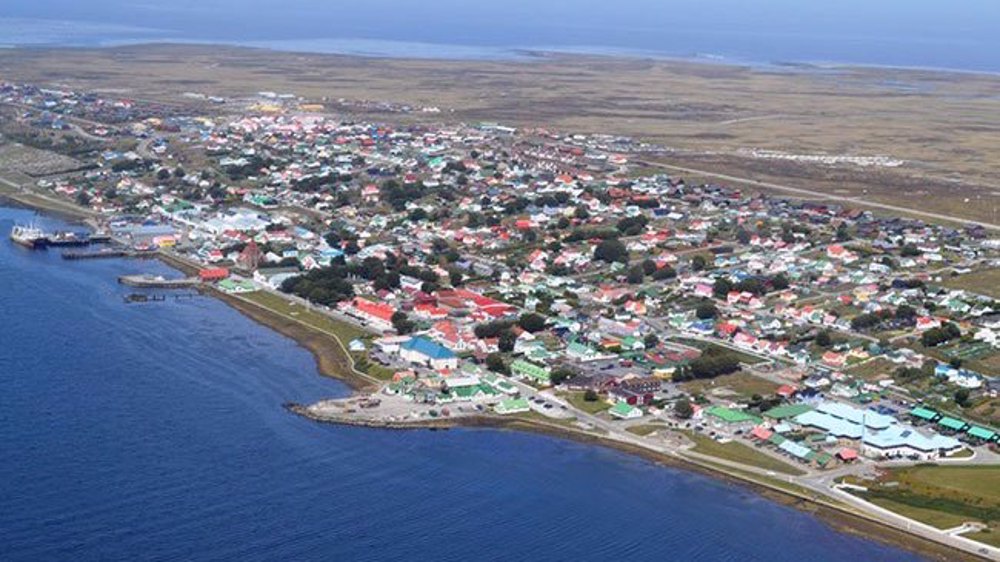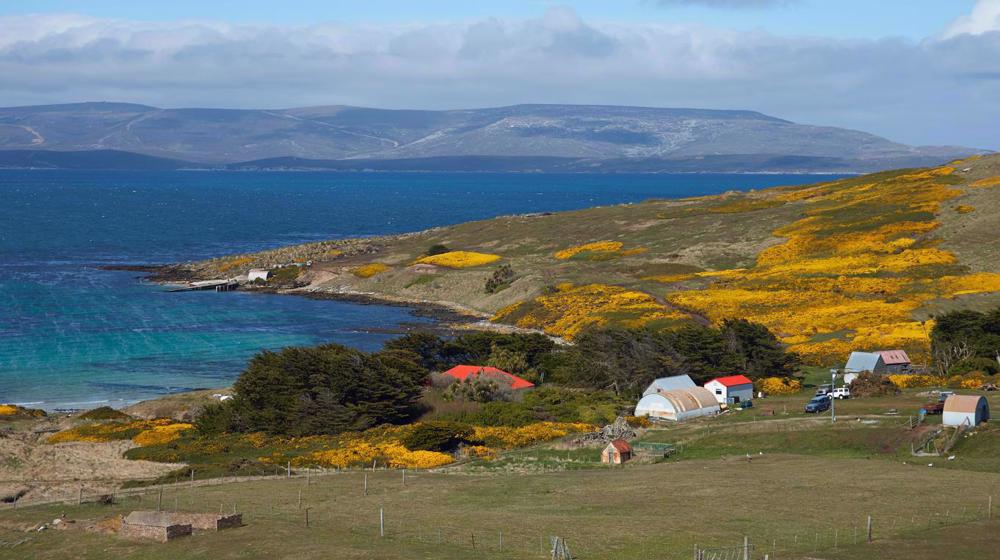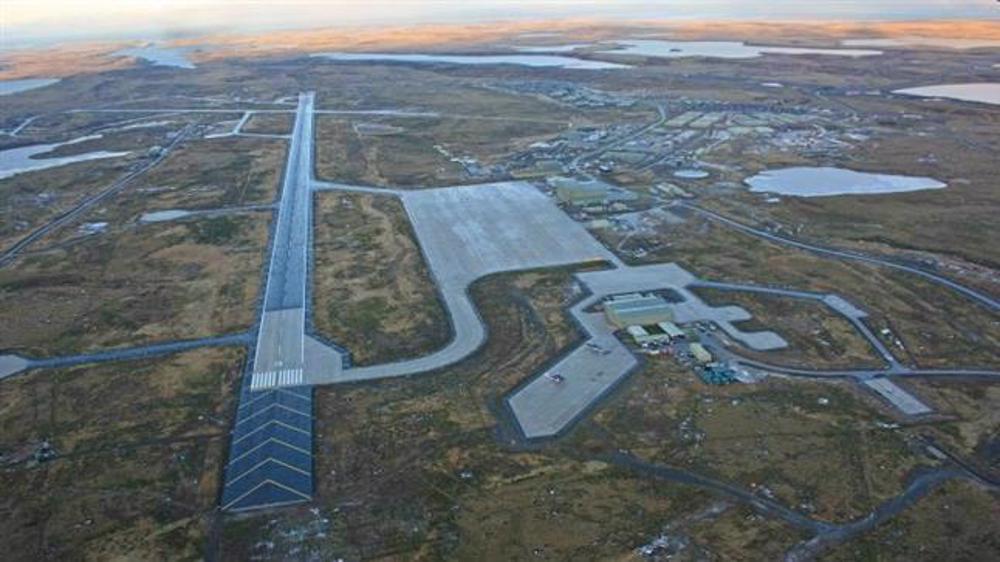EU's use of Malvinas Islands in dispute with Argentina enrages Britain
The UK government has criticized the European Union, saying it regrets that it does not use the correct words to call the British-controlled Falkland Islands and used the name Malvinas, the name preferred by Argentina.
In a statement from the summit of the European Union and Latin America on Tuesday, the islands in the South Atlantic Ocean, disputed between UK and Argentina, were called by the two names of Britain, Falkland, and the name of Argentina, Malvinas. It was seen as a diplomatic victory by Argentina, which has long claimed ownership of the islands.
The Malvinas Islands (Islas Malvinas), which the UK calls the Falkland Islands, is a strategic archipelago in the South Atlantic Ocean. The archipelago with an area of 12,000 square kilometers includes two western and eastern parts and 776 smaller islands.
Malvinas or Falkland, as a British overseas territory, has a self-governing system and the UK is responsible for its defense and foreign affairs.
On Wednesday, British diplomats asked the European Union to clarify about the decision and the position of the European Union on the matter. A European Union official, recalling Brexit and the UK withdrawal from EU, said that it’s the position of 27 member states of the Union and 33 member states of Slack. He added that if Britain was a member of the European Union, it might be able to react on the matter.
Max Blain, a spokesman for Prime Minister Rishi Sunak, said EU officials had since "clarified their position".
“It would have been entirely unacceptable for the EU to question the Falkland Islanders’ right to decide their own future,” he said.
“To be clear, the Falkland Islands are British, that was the choice of the islanders themselves. The EU has rightly now clarified that their position on the Falklands has not changed after their regrettable choice of words.”
“The concern is any suggestion that EU states would recognize Argentina’s claims on the Falklands, which they have now clarified is incorrect,” he added.
Residents of the area voted overwhelmingly in 2013 in favor of remaining a British Overseas Territory.
The local government of the Falkland Islands also criticized the use of the name "Malvinas" on Thursday and asked the European Union to respect its right to self-determination.
“We are hugely disappointed that it has been decided, without input from the Falkland Islands or the UK government, to refer to our Islands by a name that has been given to us by our aggressive and hostile neighbor, Argentina,” Teslyn Barkman, the deputy chair of the Falkland Islands Legislative Assembly, said in a Thursday statement.
Earlier, Argentina's Foreign Minister Santiago Cafirero said the summit's statement was a renewed call from the international community to Britain to fulfill its commitments to resume sovereignty talks with Argentina.
But the European Union said in a statement that it was not in a position to express "any position" on the matter, saying that member states had not changed their position on it.
The Malvinas Islands are situated just over 480 km from the Argentine coast in the South Atlantic Ocean. The UK has occupied the archipelago since 1833.
Argentina and the UK fought a 10-week war over the archipelago in April-June 1982, with the UK eventually prevailing with the help of its allies, notably Chile, which at the time was deeply hostile to Argentina.
The Argentine government has periodically stepped up efforts to regain control of the islands, home to an estimated 3,200 people from 60 countries.
In 2016, the two sides agreed to disagree about sovereignty, but to cooperate on issues such as energy, shipping and fishing, and on identifying the remains of unknown Argentine soldiers killed in battle.
Israel preparing to stay in southern Lebanon after ceasefire: Report
Israeli pressure on Hamas ‘hardly helped’; swap deal necessary: Ex-Mossad chief
Far-right Israeli minister Ben-Gvir again storms al-Aqsa Mosque
Iran: Israel’s attack on journalists’ vehicle in Gaza amounts to ‘war crime’
VIDEO | Israel’s war spending
Palestine Action wins again
VIDEO | Palestinian Authority's blockade of Jenin refugee camp reaches third week
Dec. 25: ‘Axis of Resistance’ operations against Israeli occupation













 This makes it easy to access the Press TV website
This makes it easy to access the Press TV website